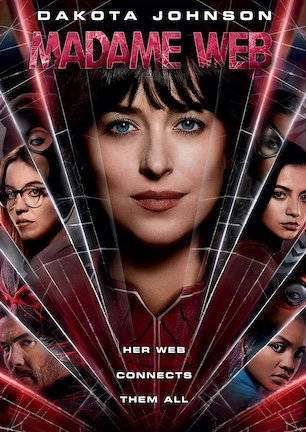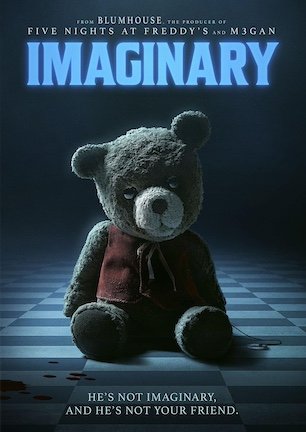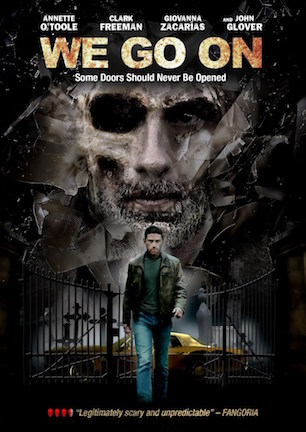Studio: Universal Pictures
Director: Bryan Bertino
Writer: Bryan Bertino, Sam Esmail
Producer: Jason Blum, Marc Platt, Adam Siegel, Adrienne Biddle, Bryan Bertino
Stars: Todd Stashwick, Alexandra Lydon, Audrey Marie Anderson, Barak Hardley
Review Score:
Summary:
Four people find camcorders mysteriously left on their doorsteps and become unwitting players in a twisted game of terror.
Review:
With its can’t miss combination of slick production value and broad commercial appeal, Blumhouse Productions steamrolled onto the horror scene with a seemingly unending string of franchise birthers including “Paranormal Activity” (review here), “Insidious,” and “The Purge” (review here). Fans appreciated the high quality polish and top talents tapped for the projects. Investors appreciated the low seven-figure price tags assuring big box office returns even in the event of a misfire.
Jason Blum had the Midas touch and everyone wanted a finger in one of his production pies. Then like a rash of Krispy Kreme stores going belly up after a turn of the century implosion, the Blumhouse boom turned towards a possible bust from perhaps expanding too far too soon, and from spreading the value of its name recognition wafer-thin in the process.
Genre fans were tickled with teases for tantalizing titles like “Area 51” from Oren Peli, returning to the director’s chair for the first time since the original “Paranormal Activity.” Bryan Bertino would be doing the same with “Mockingbird,” his first feature since the widely-acclaimed home invasion horror “The Strangers” in 2008.
Announcements and entertainment news stories kept coming. “Stretch” featuring “Insidious” and “The Conjuring” (review here) star Patrick Wilson. Stephen King adaptation “Mercy” starring Dylan McDermott as well as Chandler Riggs of “The Walking Dead.” There was no shortage of reasons to rationalize piqued interest in upcoming Blumhouse releases. But there was a strange shortage in the actual releases themselves.
Where were all of these reportedly completed movies? “Area 51” finished filming in 2009. “Mockingbird” wrapped in 2012. No one was talking openly and no one seemed in a hurry to unlock distribution channels and start earning a return on their investments. And that is never a positive sign when it comes to speculating on a movie’s possible quality.
Then while the marketing machine worked overtime touting the theatrical release of Blumhouse’s “Ouija,” a quieter press release announced the formation of Blumhouse offshoot “BH Tilt,” a digital distribution dumping ground for the movies Blumhouse proper wasn’t quite sure what to do with. “Stretch,” “Mercy,” “Mockingbird,” et al. would finally see the light of day, provided people paid attention to the New Release section on their VOD platform of choice.
“Mockingbird” stealthily appeared one morning in early October 2014 alongside its alphabetical brother “Mercy,” and quickly justified suspicions that its silent release, lengthy delay, and missing marketing push were not part of some carefully calculated strategy to wait out the best release window. This was a baby in a basket left on an orphanage’s doorstep while mom sped away before anyone recognized her face.
“Mockingbird” weaves together three “found footage” tales of college coed Beth, lovable loser Leonard, and middle-aged married couple Tom and Emmy. Doorbells are rung and waiting in a gift box on each of their stoops is a camcorder and a message that says, “keep filming.” While they don’t yet know it, each of them has just become a player in as yet unrevealed game building towards a very deadly conclusion.
The premise is certainly intriguing, but the presentation certainly is not. Taking place in 1995 for no reason other than eliminating cell phones and Internet access that might otherwise end the story in seconds, “Mockingbird” illustrates how identity theft easily grew into such a widespread problem before the end of the 20th century.
Bizarrely, everyone automatically and independently assumes that the serendipitously arriving camera must be a prize from a contest they don’t remember entering. Emmy thinks it was a promotion she took part in at the mall. Beth guesses it came from a credit card application she completed on campus to get a free water bottle. Apparently, everyone put their information on so many forms that they can’t even keep it all straight. Leonard’s mother is the only person who even wonders out loud why a prize would be a loose video camera in the first place.
Within seconds of mounting the camera on a shoulder, each person is compelled to record a guided tour of each home or apartment. I don’t know why anyone would assume that would be fun to film, because it definitely is not fun to watch. Like the worst offenders of the “found footage” subgenre, “Mockingbird” devotes close to a full half-hour of its opening act to a boring buildup, which leads to a surprising amount of watch checking for a movie that runs just 77 minutes without credits.
“Mockingbird” smartly jumps the “why are they still filming?” hurdle by disabling the power button on each camcorder. The cameras are rolling right from the unboxing and no one can turn them off no matter how hard they try. That doesn’t explain who keeps the battery charged or who swaps the VHS cassettes though, which would presumably have to happen quite often. I suppose we should just take one bit of fumbled fiction at a time, no? (One might reason that there never were any tapes, and the footage was recorded from wherever the cameras were transmitting, except that still doesn’t explain how the units always had juice.)
Strange packages continue populating the doorsteps. Each one contains instructions and/or an item that leads each person separately on a path towards the mysterious perpetrator’s endgame. I’m not sure if I should be surprised or not that no one ever thinks to point the “always on” camera at the front door to find out who keeps dropping unwanted gifts.
Given how tense writer/director Bryan Bertino’s “The Strangers” is, and the track record of Jason Blum’s productions (I generally enjoy them, with “Mockingbird” being the first full-blown disappointment for me), I held out hope that there might yet be a devilishly clever convergence of the three threads. Instead, the movie takes the predictably dry direction I feared it would, concluding in exactly the stereotypical standoff scenario anyone halfway paying attention will see coming while characters are still filming themselves in mirrors.
“Mockingbird” really should be scarier than it is, what with its recorded voices echoing over crackling speakers and creepy mannequins lit by lightning. Except the manner in which it bounces between storylines disorients the mood. Beth and the married couple have nearly identical terror experiences, making separate threads redundant. Leonard provides comic relief as he is suited in a clown costume and sent throughout town performing pranks. But that merely deflates any tension crafted by the other two-thirds of the movie every time the focus swings back to his nutty antics. The combination creates an overall anemic atmosphere unable to generate a consistent tone for the audience to hook into.
Since I’ve railed in general terms about the classical music cliché in horror movies before, I’ll be more specific here. Filmmakers: it’s time to retire “In the Hall of the Mountain King” as a musical accompaniment for suspense scenes. Its employment hasn’t been fitting since the “Needful Things” trailer in 1993 and it needs to go back on hiatus for probably another 20 years.
And that ends up being the biggest disappointment of all about “Mockingbird.” It pilfers the pockets of so many things that have already been done and overdone, e.g. the “let’s play a game” premise of “Saw,” unnecessary intertitles straight out of “The Shining,” and a final ten seconds ripped from more than one movie that would be a spoiler to name. Yet none of it comes close to working the way it did for those original sources. Bryan Bertino is capable of much better than this. So is Jason Blum. Perhaps taking inspiration from their film’s antagonists, it’s no wonder why they rang a doorbell of their own and walked away whistling, hoping no one would notice who was responsible.
P.S. – The scary-looking clown screaming on the film’s artwork? That’s Leonard, the goofball jokester and one of the film’s “good guys.” So if coulrophobic thrills are something you expect from “Mockingbird,” don’t let the poster mislead you.
Review Score: 35







If you want to see impossible amounts of blood explode crimson colors like the world’s worst version of a gender reveal, well, “Abigail” at least has that.